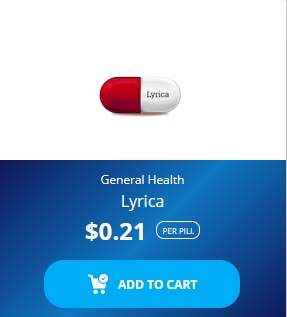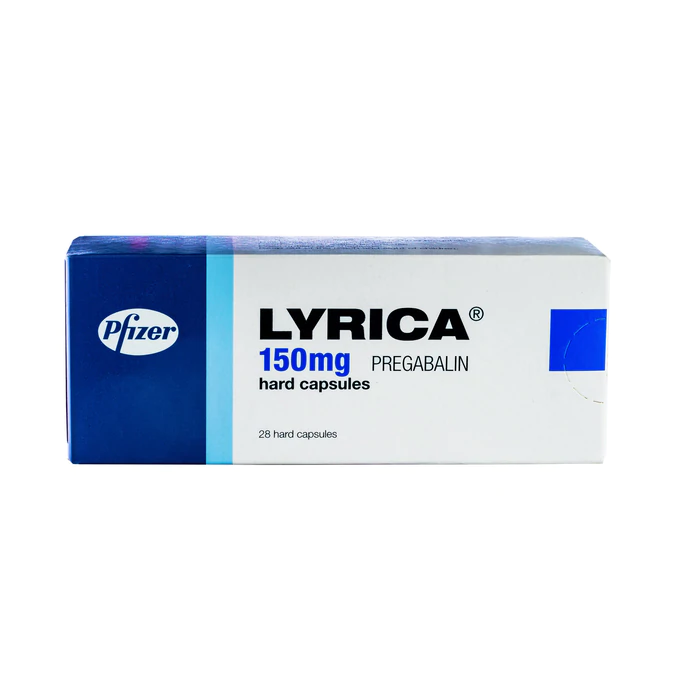
Buy Lyrica (pregabalin) online – experiences and tips
Consumer Protection Guide – We show how it works
Lyrica (pregabalin) is a highly effective drug from the group of gabapentinoids. The drug is subject to prescription in UK, which means you need a legal prescription to buy it, even if you want to buy it online.
But what exactly is Lyrica (pregabalin) and what effects does it have? What are the possible risks and side effects? And how does it all work with the online prescription? These are exactly the questions you will find the answers to here.
Lyrica (pregabalin) – definition & indications
Lyrica (pregabalin) is a drug from the group of so-called gabapentinoids. The active substance pregabalin is an anticonvulsant.
The drug can be used to treat nerve pain and generalised anxiety disorders. If Lyrica (pregabalin) is combined with other medicines, epilepsy is also a possible area of application.
Experience with Lyrica (Pregabalin)
Lyrica (Pregabalin) is rated by users on sanego.de with an average of 6.6 out of a possible 10 points. Especially in the areas of application and efficacy, the ratings are above average. There are only slight deductions in the areas of tolerability and price/performance ratio.
Especially with regard to the assessment of tolerability, it should be noted that this can vary greatly from person to person and can also be influenced by the respective daily form, age or certain underlying diseases. With an appropriate indication, clearly more than half of the users would recommend the drug Lyrica (pregabalin) to other users.
The most frequent side effect reported by users is fatigue, closely followed by weight gain. Dizziness follows at some distance. Significantly fewer users suffer from drowsiness and a similarly large proportion of people have no side effects.
How does Lyrica (pregabalin) work in the body?
The active substance pregabalin contained in Lyrica ensures that the uncontrolled transmission of electrical signals in the nerve cells is minimised in the human brain. By minimising this uncontrolled transmission, the development of convulsions, excessive reactions or disorders of consciousness can be reduced.
Furthermore, the effect of Lyrica (pregabalin) can relieve nerve pain and treat anxiety disorders.
On a biochemical level, the following happens in the body. The active substance pregabalin binds to a specific subunit of calcium ion channels in the central nervous system (CNS). As a result, calcium can no longer flow into the nerve endings. This normalises the release of neurotransmitters.
Dosage
Lyrica (pregabalin) is available in different dosages and dosage forms. Usually, tablets are used. However, Lyrica solution is also suitable, especially for older patients with swallowing difficulties.
The dosage is determined and adjusted by the doctor treating the patient. As a rule, the amount of Lyrica (pregabalin) taken is increased step by step until you have reached your so-called maintenance dose. Your doctor will then set you exactly to this dose.
For adults, the rough guideline for taking Lyrica (pregabalin) is 150 to 600 mg/day.
How long Lyrica (pregabalin) should be taken depends on the type and severity of the disease. In principle, a doctor can also determine a longer-term intake.
How is Lyrica (pregabalin) taken properly?
The medicine should be taken with a large glass of water. It can be taken independently of meals.
Lyrica (pregabalin) should always be taken in two to three single doses evenly distributed throughout the day.
Since Lyrica (pregabalin) has a certain potential for dependence, discontinuation of the drug should always take place consciously and under medical supervision. In this way, any withdrawal symptoms can be dealt with if necessary.
Onset of action of pregabalin
The active substance pregabalin reaches its maximum concentration in the plasma about one hour after ingestion. After only six to seven hours, half of the active substance is broken down again (half-life).
Since the dose of the drug is increased slowly and due to its special form of absorption, the onset of action of pregabalin occurs on average after two to five days.
Contraindications: When should I not take Lyrica (pregabalin)?
Lyrica (pregabalin) is a highly potent drug and therefore, as with any other highly potent drug, there are certain contraindications to taking it.
- Lyrica (pregabalin) must always be avoided if there is hypersensitivity or allergy to any of the ingredients.
- Under certain circumstances, such as the presence of heart disease or diabetes mellitus, a doctor must clarify exactly whether the intake of Lyrica (pregabalin) is sensible and safe.
- For children and adolescents under 18 years of age, the drug Lyrica (Pregabalin) should generally be avoided and a suitable alternative should be found.
- During pregnancy and while breastfeeding, it must be very carefully considered whether the use of Lyrica (pregabalin) is sensible or what goal-oriented alternatives there are.
In short, always discuss in detail with your doctor whether and when the use of Lyrica (pregabalin) is sensible and expedient.
What are the side effects of Lyrica (pregabalin)?
When taking Lyrica (pregabalin), as with other medicines, you may experience a variety of side effects. The most common side effects, which can occur in one in 1000 users, include:
- Vomiting
- Constipation
- Bloating
- Increased salivation
- Dizziness
- Drowsiness
- Irritability
Also rather common in relation to eating are both:
- Weight gain
- Increases in appetite
- Weight loss
- Loss of appetite
- Taste disturbances
Occasionally side effects occur such as:
- Palpitations
- Low blood pressure
- Visual disturbances
- Movement disorders
- Personality changes
The list of side effects could be extended to include speech disorders, depression and other things. In short, the list is intended to show you that if you experience an undesirable change while taking Lyrica (pregabalin), please take it seriously and contact your doctor immediately. He or she can discuss the further course of action with you.
Drug interactions
Taking different medicines at the same time or drinking alcohol can change the effect of Lyrica (pregabalin) or lead to interactions that are dangerous to your health. Therefore, it is important that you talk to your doctor about all the medicines you are currently taking before taking Lyrica (pregabalin).
Current scientific advice is not to take Lyrica (pregabalin) at the same time as other medications used to treat an anxiety disorder. An example of such a drug is lorazepam.
While taking Lyrica (pregabalin), you should also refrain from consuming drinks and food containing alcohol. Taking them together can lead to strong and unpredictable physical reactions.

